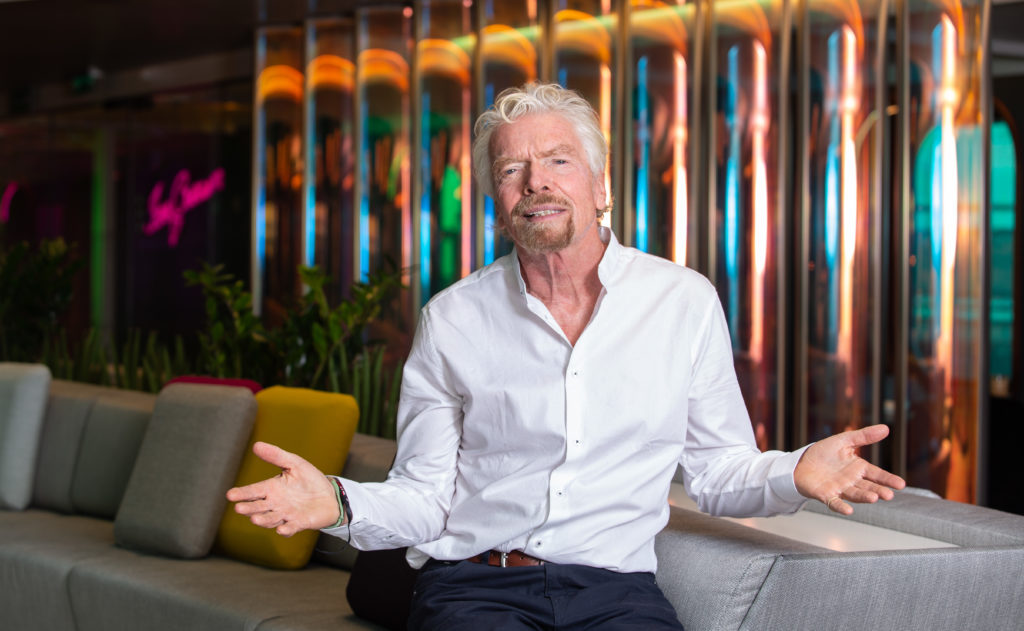Billionaire Richard Branson managed to be first after all. The British 70-year-old who founded Virgin Atlantic Airways travelled to space Sunday, ushering in what is likely to be a new era of space tourism for the ultra-wealthy.
Branson, along with five others from his Virgin Galactic space-tourism company, reached an altitude of 86 kilometres over the New Mexico desert aboard a small rocket. It was enough for everyone aboard to experience between three to four minutes of weightlessness aboard the white space plane named Unity. “The whole thing, it was just magical,” Branson said.
Branson tweeted “I was once a child with a dream looking up to the stars. Now I’m an adult in a spaceship looking down to our beautiful Earth. To the next generation of dreamers: if we can do this, just imagine what you can do”
Branson characterized it as an “experience of a lifetime” during a live broadcast of the flight. It was a long time coming.
Branson founded Virgin Galactic in 2004 and he had predicted commercial flights to space would begin by 2007 but it was not to be. Since then, he had been saying the flights were right around the corner but delays kept piling up.
Still, that didn’t prevent the approximately 600 people who doled out at least $200,000 for tickets to space at an unspecified time. Branson himself was not scheduled to make the flight until later this summer but he decided to take an earlier flight after his richer rival Jeff Bezos announced his plans to make a similar trip to space in nine days. “I’ve been itching to go, and they said they wanted somebody to properly test the astronaut experience,” Branson said in a recent interview with the Washington Post. “And I was damned if I was going to let anyone take that seat.”
“Can’t wait to join the club!” Bezos wrote in an Instagram post in which he congratulated Branson and the rest of the crew. Bezos put on a happy face Sunday but his Blue Origin company took to Twitter a few days ago to lay out why its rides to space will be better than those offered by Virgin. Chief among them is that Blue Origin plans to take people past the so-called Karman line that is 62 miles above the earth and is internationally recognized as the boundary to space. NASA, the Federal Aviation Administration, and other experts, however, say the boundary with space begins at 50 miles.
Branson’s long-awaited journey to space began at 8:40 a.m. when a carrier aircraft with the V.S.S. Unity tucked underneath took off from New Mexico to an altitude of some 45,000 feet. That is where the Unity was released, its motor ignited and started going upward to the edge of space. Branson was joined by pilots Dave Mackay and Michael Masucci and three employees of Virgin Galactic: Chief astronaut instructor Beth Moses, lead operations engineer Colin Bennett and government affairs vice president Sirisha Bandla. The company plans to carry out several more test flights before beginning commercial operations next year.
For Virgin Galactic, the launch was accompanied by a party-like atmosphere as the company seemed determined to differentiate itself from the traditional NASA launch. The event included a musical guest, Khalid, who even debuted a new song for the occasion.
Comedian and late-night host Stephen Colbert hosted the live broadcast. The other big-name billionaire with space dreams, Elon Musk, was also in New Mexico to witness the whole thing and congratulated Branson for a “beautiful flight.” Asked afterwards if he had any plans for future feats, Branson said he will “definitely give it a rest for the time being” because “I’m not sure it would be fair to put my family through another one.”








